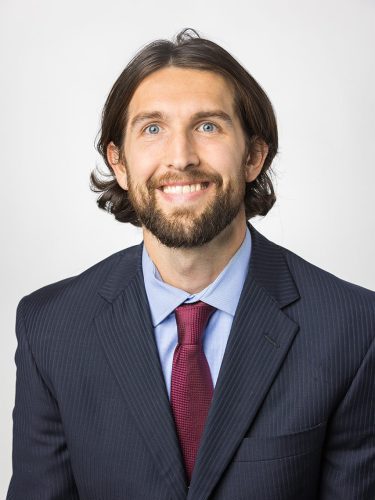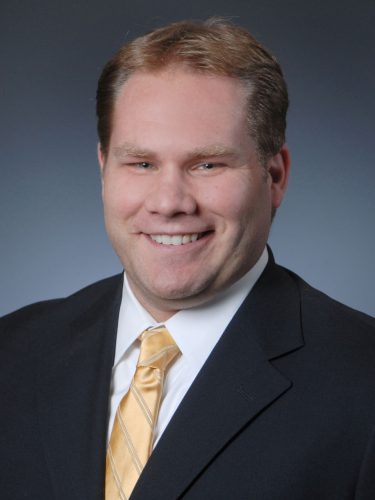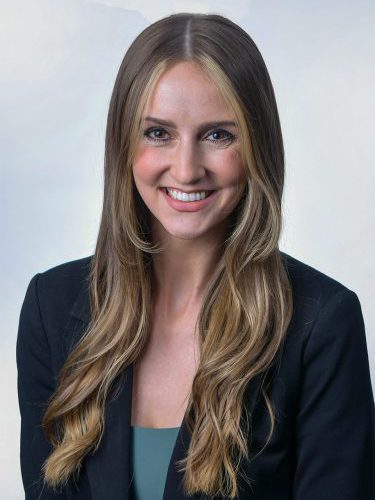Sport-Related Concussion Program
A sport-related concussion is a disturbance of brain function caused by a direct or indirect force. Most concussions occur from a direct hit to the head, but sometimes a hard hit to the body can transfer forces to the brain and cause a concussion. Fortunately, most concussions in athletes can resolve quickly with adequate time for full physical and cognitive recovery.
The sports medicine physicians at St. Elizabeth are specially trained in the diagnosis and management of sport-related concussions. A comprehensive plan was developed for each athlete treated to help facilitate a safe return to activity.
What are the signs and symptoms of a sport-related concussion?
Ninety percent of concussions do not involve loss of consciousness. The most common signs and symptoms of a concussion include:
- Headache.
- Blank stare.
- Nausea.
- Dizziness.
- Balance problems.
- Blurry vision.
- Difficulty concentrating.
- Mental confusion.
- Sensitivity to light and noise.

Learn More
If you have signs of a concussion, call 911 or visit your nearest Emergency Department. For more information on concussions, call our Sports Medicine team at call (859) 212-5600.
How do you diagnose concussion?
The experts at St. Elizabeth utilize a comprehensive history and physical examination to diagnose sport-related concussions. Standard imaging techniques, such as X-ray, CT-scan, or MRI, cannot diagnose a concussion. Exciting new research is looking at advanced imaging techniques and special laboratory tests that may someday help in the diagnosis and management of concussions.
Our comprehensive evaluation includes the following:
ImPACT™ testing is an efficient (30 minute) computerized neurocognitive test that is utilized in some athletes to help us gain insight into the following cognitive functions:
- Memory.
- Attention.
- Processing speed.
- Reaction time.
Neurocognitive testing is done in conjunction with our comprehensive history and physical to help with our management and return to play decisions. ImPACT™ testing is typically given after the athlete is symptom free and it is most accurate when compared to a baseline exam taken before the concussion occurs.
What is the typical treatment for a sport-related concussion?
If a concussion is suspected, the athlete should be removed from the game or practice and restricted from returning to play that same day. The athlete will not be permitted to return unless written clearance from a physician is provided.
The hallmark of treatment is rest and adequate time for full physical and cognitive recovery. All concussed athletes are encouraged to get plenty of sleep, stay well hydrated, and maintain a well-balanced diet. Many athletes will report worsening symptoms with cognitive/academic stimulation. These atheletes will benefit from temporary academic accommodations. Most athletes will require only brief use of over the counter analgesics for their post-concussion headache.
For the small percentage of athletes that have a more prolonged course, other treatment options may include:
- Medication.
- Physical therapy.
- Vestibular (balance) therapy.
- Psychological rehabilitation.
How do you know when it is safe for an athlete to return to play?
The athlete will be cleared by the physician to begin a graduated step wise return to activity when he or she:
- Is symptom free.
- Has a normal physical exam.
- Passes all appropriate testing.
The athlete will typically begin with light aerobic exercise and progress to sport-specific exercise, non-contact training drills, full contact practice and finally return to competition.
Meet Our Team
In addition to our concussion program, St. Elizabeth Sports Medicine is dedicated to providing comprehensive musculoskeletal care to active individuals and athletes.
Our Sports Medicine team combines the expertise of our doctors with outstanding physical therapy and athletic training services to ensure you get the care you need to live a healthy, active life.




